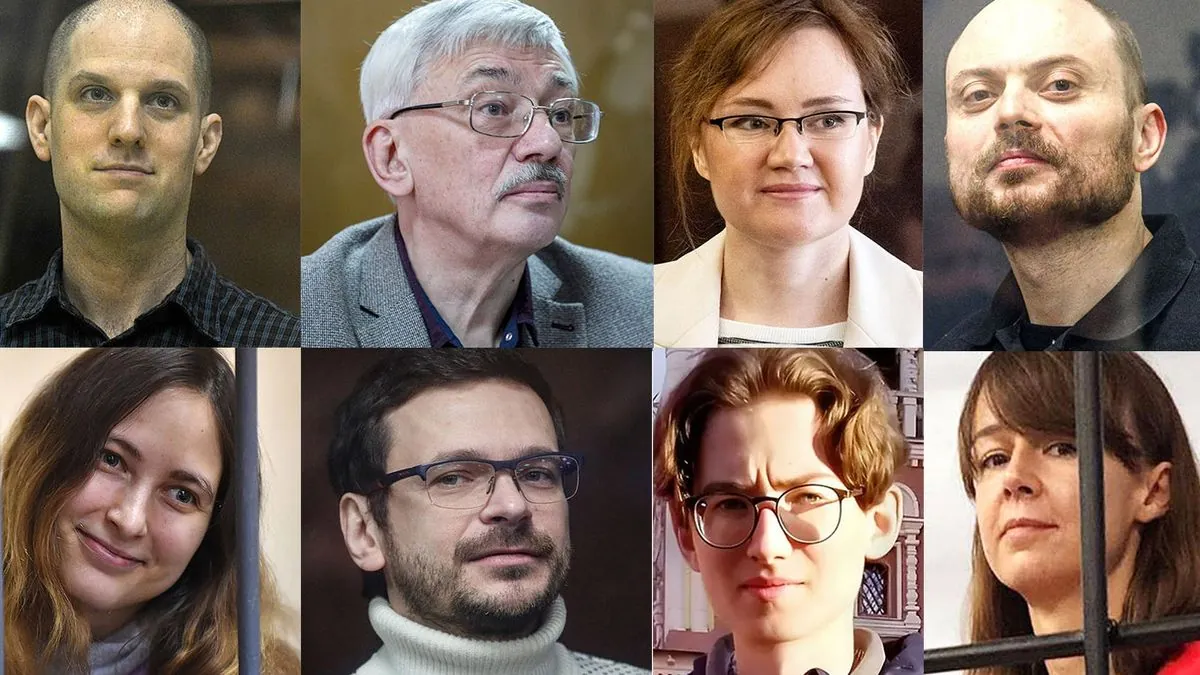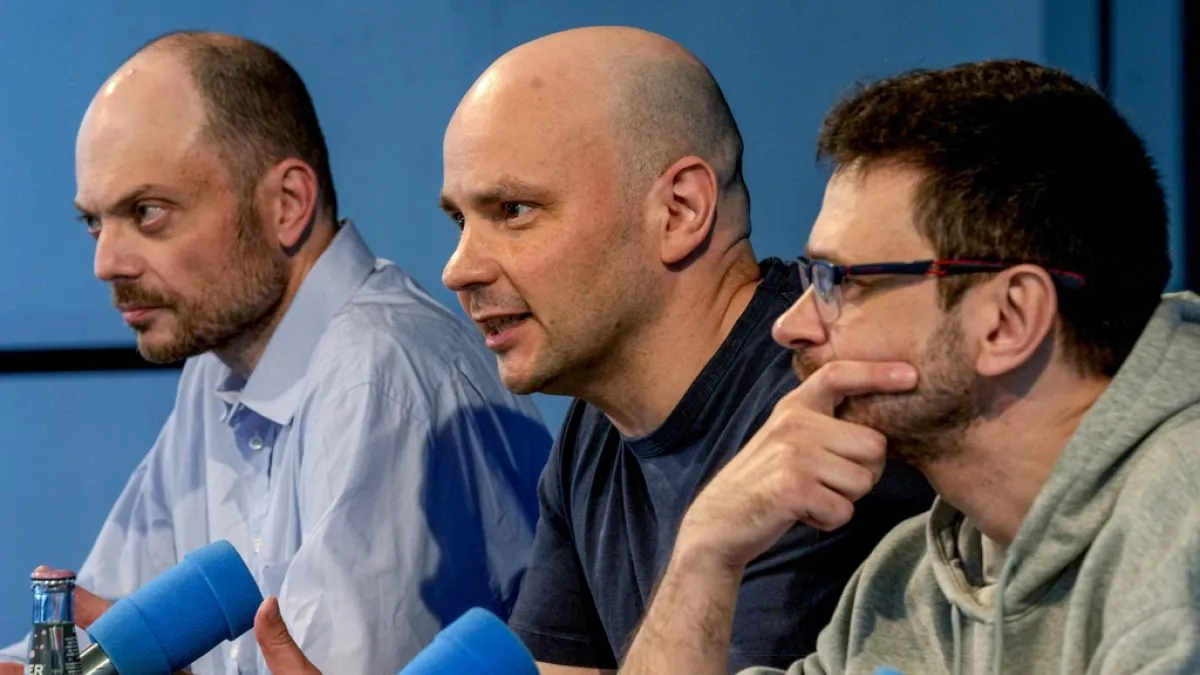Russian Dissidents Freed in Historic Prisoner Swap, Forced into Exile
A major prisoner exchange involving Russian opposition figures, U.S. and German citizens, and a Russian assassin has taken place. The complex deal highlights the plight of political prisoners in Russia.

A significant prisoner exchange occurred last week, resulting in the release of several Russian opposition figures alongside U.S. and German citizens. The swap, which took place on August 1, 2024, included a Russian assassin and seven political dissidents, effectively forcing the latter into exile.
Ilya Yashin, one of the released opposition politicians, shared his experience in Moscow's Lefortovo prison. Prior to his release, guards provided him with the memoirs of Andrei Sakharov, a renowned Soviet dissident and Nobel Peace Prize laureate. This gesture, according to Yashin, demonstrated an unexpected sense of humor from his jailers.
"His jailers appeared to have a sense of humor"
The exchange involved several prominent figures from the Russian opposition movement:
- Oleg Orlov, founder of the Nobel Peace Prize-winning organization Memorial
- Ksenia Fadeyeva, Lilia Chanysheva, and Vadim Ostanin, who led local offices of Alexei Navalny's Anti-Corruption Foundation
- Andrei Pivovarov, former head of Open Russia
- Alexandra Skochilenko, an artist who protested the war in Ukraine

The inclusion of these dissidents in the swap is noteworthy, as most appear to hold only Russian citizenship. This aspect of the deal reflects the complex diplomatic negotiations that spanned over a year.
A crucial element in finalizing the agreement was persuading Germany to release Vadim Krasikov, a Russian assassin serving a life sentence for a murder committed in Berlin's Kleiner Tiergarten park. The initial plan involved exchanging Krasikov for Alexei Navalny, but Navalny's unexpected death on February 16, 2024, altered the negotiations.
The U.S. administration swiftly adapted its approach following Navalny's death, focusing on securing the release of multiple political prisoners instead. The final list of Russians to be freed was compiled using information from human rights organizations and the State Department's records.
Some of the released individuals, including Vladimir Kara-Murza and Ksenia Fadeyeva, stated they were not asked for consent regarding the swap. Yashin actively opposed his inclusion, expressing a desire to remain in Russia despite his eight-year sentence for criticizing the war in Ukraine.
The exchange highlights the broader issue of political prisoners in Russia. According to Memorial, nearly 800 people are currently imprisoned on politically motivated or religious charges, with the actual number likely higher.
Upon their arrival in Germany, the freed prisoners were greeted by Chancellor Olaf Scholz and transferred to a military hospital in Koblenz for medical evaluations. Kara-Murza, addressing criticism of Krasikov's release, quoted the Talmud, emphasizing the importance of saving lives.
As the released dissidents adjust to their newfound freedom, they face the challenge of continuing their work from exile while grappling with the reality of being unable to return to Russia without jeopardizing future prisoner exchanges.


































